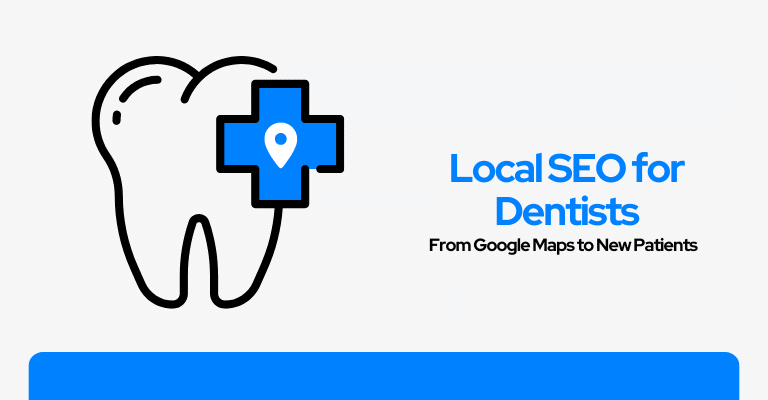Let’s talk about something that could change the game for your personal injury law firm: SEO.
So, what’s SEO?
It stands for Search Engine Optimization. Think of it as a way to make your website pop up when someone types “personal injury lawyer near me” into Google.
It’s a big deal because most folks these days hunt for lawyers online. In fact, 93% of online journeys kick off with a search engine.
And here’s the kicker, 91.5% of people don’t even peek past the first page of results. If your firm’s not there, you’re missing out on heaps of potential clients.
In this guide, we’ll walk you through everything you need to know about SEO for personal injury lawyers and law firms.
Ready to get more clients knocking on your door? Let’s dive in!
Why Your Personal Injury Law Firm Needs SEO
Picture this: someone’s just been in a car crash in your town. They grab their phone and search “personal injury lawyer near me.”
If your website isn’t one of the top results, they’ll likely call someone else. That’s where SEO comes in, it pushes your site up the rankings so people can find you easily.
Why does this matter so much?
Well, the legal world is packed with competition. Over 48,397 personal injury law firms are battling it out in the US alone.
SEO helps you stand out from the crowd.
Plus, with more than 13.7 billion Google searches happening daily, you’ve got a massive pool of potential clients out there. If you’re not showing up, someone else is snagging those cases.
So, let’s get your firm noticed!

Developing an Effective SEO Strategy for Personal Injury Lawyers
Before you jump into SEO, you need a plan.
Start by figuring out who your clients are.
Most people looking for personal injury lawyers are stressed out, they’ve been hurt and need help fast.
They’re typing things like “what to do after a car accident” or “how much can I get for my injury?”
Your job is to make sure your website answers those questions and shows up when they search.
Here’s how to build a solid strategy:
- Set Clear Goals: Decide what you want. More website visitors? More phone calls? Aim for something specific, like boosting your organic traffic by 20% in six months.
- Know Your Audience: Think about your typical client. Are they locals searching for nearby help? Tailor your site to their needs.
- Check Out the Competition: Look at what other law firms in your area are doing. If they’re ranking high, see what keywords they’re using and how their sites are set up.
- Pick the Right Keywords: Words like “SEO for personal injury lawyer” or “personal injury attorney near me” are gold. Use them to guide your content.
A good strategy is like a roadmap, it keeps you on track and moving towards more clients.

Top SEO Strategies to Boost Your Personal Injury Practice
Now, let’s get into the nitty-gritty. Here are the best ways to make your website shine in search results.
Don’t worry, we’ll keep it simple!
1. Website Optimization
Your website is your online shopfront. It needs to look good and work well. Here’s what to focus on:
- Speed: A slow site drives people away. Aim for a load time under 3 seconds, Google loves that.
- Mobile-Friendly: Over 60% of searches happen on phones. Make sure your site looks great and works smoothly on mobiles.
- Easy Navigation: Clear menus and buttons help visitors find what they need fast. Sprinkle keywords like “SEO for personal injury law firms” in your titles and descriptions too.
A slick website keeps people around and tells Google you mean business.
2. Local SEO
If you’re a lawyer in Leeds, you want locals finding you, not someone across the country. That’s where local SEO steps in. Try these:
- Google Business Profile: Set it up with your address, phone number, and services. It’s free and boosts your local visibility.
- Local Keywords: Use phrases like “personal injury lawyer in Birmingham” on your site.
- Reviews: Encourage happy clients to leave positive feedback online. It builds trust and helps your ranking.
Local SEO puts you on the map, literally!
3. Content Marketing
Content is king! Writing helpful stuff draws people to your site. Here’s how:
- Blog Posts: Write about things like “Steps After a Slip and Fall” or “How to File an Injury Claim.” It answers client questions and boosts your SEO.
- Videos or Images: Add a quick explainer video or an infographic. People love visuals, and they keep visitors engaged longer.
Good content is like free advice, it builds trust and keeps your site buzzing.
4. Keyword Research
Keywords are what people type into Google. Find the right ones, and you’re golden. We suggest using a smart approach to pick terms that attract clients actively seeking personal injury lawyers.
Here’s how to nail it:
- Tools: Grab a free tool like Google Keyword Planner to spot popular searches with manageable competition. Paid options like Ahrefs or SEMrush offer deeper insights if you’re ready to invest.
- Focus on Intent: Target phrases showing someone’s ready to hire, like “car accident lawyer near me,” or informational ones like “how to file a personal injury claim.” These connect you with clients at different stages.
- Localise It: Add your city or region to keywords, such as “personal injury lawyer in Manchester,” to capture local searches.
To give you a head start, check out this table of high-value keywords for personal injury law, based on recent data from Google Keyword Planner.
It shows search volume, difficulty, and traffic potential to help you choose wisely:
| Keyword | Search Volume (Monthly) | Difficulty | Traffic Potential |
| car accident lawyer | 201,000 | 36 | 2,900 |
| personal injury attorney | 90,500 | 48 | 66,000 |
| personal injury lawyer near me | 26,000 | 31 | 18,000 |
| accident lawyer | 40,500 | 19 | 3,400 |
| how to file a personal injury claim | 1,200 | 15 | 800 |
Weave these keywords naturally into your website’s pages and blogs. It’s like fishing, use the right bait, and you’ll reel in clients!
5. Technical SEO
This is the behind-the-scenes stuff that makes your site work for Google.
Keep it basic:
- Fix Broken Links: Dead ends annoy visitors and hurt your ranking.
- Sitemap: This is like a guide for Google to explore your site. Submit it via Google Search Console.
- Secure It: Use HTTPS, it’s safer and Google prefers it.
For websites looking to climb higher in search rankings, mastering technical SEO is essential for long-term success.
A tidy site runs smoothly and climbs the ranks.
6. Backlinking
Backlinks are when other sites link to yours. They’re like a thumbs-up to Google.
Here’s how to get them:
- Legal Directories: List your firm on sites like Avvo or Justia. They’re trusted and give you a boost.
- Guest Posts: Write an article for a local blog and link back to your site.
Quality links from legit sites make you look good to search engines.
7. Trust and Credibility
People won’t hire you if they don’t trust you. Show them you’re the real deal:
- Testimonials: Share what happy clients say about you.
- Qualifications: List your credentials and any awards.
- Transparency: Be clear about your services and fees.
Google cares about trust too, it’s extra important for personal injury lawyers since it’s a “Your Money or Your Life” topic.
8. Interactive Content
Make your site fun! Add stuff like:
- Claim Calculator: Let people estimate their payout. It’s handy and keeps them on your page.
- Quiz: “Do I Have a Case?” quizzes engage visitors and spark interest.
Interactive bits make your site sticky, people stay longer, and Google notices.
9. Tracking and Analysis
You need to know what’s working. Here’s how:
- Google Analytics: It’s free and shows who’s visiting your site and what they’re doing.
- Set Goals: Track things like form submissions or calls to see if your SEO’s paying off.
Checking your progress helps you tweak things and grow faster.

Advanced SEO Tactics for Personal Injury Attorneys
Ready to take your SEO game to the next level?
These advanced tactics can give your personal injury law firm a serious edge. They require extra effort, but the payoff in visibility and client leads is worth it.
Here’s how to step up:
- Location-Based Pages: Create dedicated pages for each town or city you serve, like “/manchester/personal-injury-lawyer.” These target local searches with precision, boosting your ranking for specific areas. For example, a page for “Leeds car accident lawyer” can capture clients in that city.
- Topic Hubs: Organise related content into clusters. Group all your blogs about, say, workplace injuries into one hub with a main page linking to subtopics like “construction site accidents” or “office injury claims.” This shows Google you’re a go-to expert in that area.
- Knowledge Hubs: Build an FAQ section or a resource centre answering common client questions, like “How long do I have to file a claim?” This keeps visitors on your site longer and signals authority to search engines.
- Voice Search Optimization: With most searches expected to be voice-based by 2025, optimise for conversational queries like “Who’s the best personal injury lawyer near me?” Use natural, question-based phrases in your content.
- Schema Markup: Add structured data to your site, like schema for legal services or reviews. This helps Google display rich snippets (e.g., star ratings) in search results, making your listing stand out.
- Evergreen Content Updates: Regularly refresh older blogs to keep them relevant. For instance, update a 2023 post on “Car Accident Claims” with new stats or laws to maintain its ranking power.
These strategies can make your site a powerhouse, drawing in more clicks and clients.

Avoiding Common SEO Pitfalls in Personal Injury Law
Even the best lawyers can trip up on SEO. Dodge these common mistakes to keep your personal injury firm’s website climbing the ranks:
- Skipping Local SEO: If you ignore local keywords or your Google Business Profile, you’re invisible to clients searching nearby. Local searches drive over 50% of leads for law firms, so don’t miss out.
- Ignoring Mobile: Over 60% of searches happen on phones. A site that’s clunky or slow on mobile will tank your rank and frustrate users. Test your site with Google’s Mobile-Friendly Test to stay on track.
- Fluffy Content: Thin or vague content, like generic “We’re the best!” pages, bores readers and hurts your SEO. Every word should offer value, think specific advice or actionable tips.
- No Tracking: Without tools like Google Analytics, you’re flying blind. You won’t know which pages bring leads or where to improve. Set up tracking to measure success.
- Overloading Keywords: Stuffing “SEO for personal injury lawyer” into every sentence looks spammy and can get you penalised by Google. Keep it natural and reader-friendly.
- Neglecting Backlink Quality: Low-quality or paid links from shady sites can harm your ranking. Stick to reputable sources like legal directories or local news sites.
- Ignoring User Experience: A confusing site layout or slow load times (over 3 seconds) drives visitors away. Prioritise clear navigation and fast performance.
Avoid these traps, and your SEO efforts will stay strong and effective.
Frequently Asked Questions About SEO for Personal Injury Lawyers
Got questions? We’ve got answers:
What’s the Best SEO Trick for Personal Injury Lawyers?
The best approach depends on your goals, but blending local SEO, high-quality content, and a well-optimised website is a winning combo. Focus on local keywords and user-friendly design to attract nearby clients. This mix drives leads and builds trust.
How Fast Does SEO Work?
SEO takes time to show results, with noticeable improvements often starting in 3-6 months. Major gains, like topping search rankings, may take 9-12 months of consistent effort. Stay patient and keep refining your strategy.
Should I Hire Someone for SEO?
If you’re busy or lack SEO know-how, hiring a pro can save time and boost results. Choose an agency familiar with personal injury law to get the most value. They’ll tailor strategies to your firm’s needs.
Conclusion
SEO might sound tricky, but it’s just about making your website easy to find and helpful for people who need you.
Start small, tweak your site, write a blog post, and claim your Google profile. It’s a slow build, but the payoff is huge: more clients, more cases, more growth.
Why not try one tip from this guide today? Or, if you’re stuck, drop us a line for a free chat. Let’s get your firm to the top!





